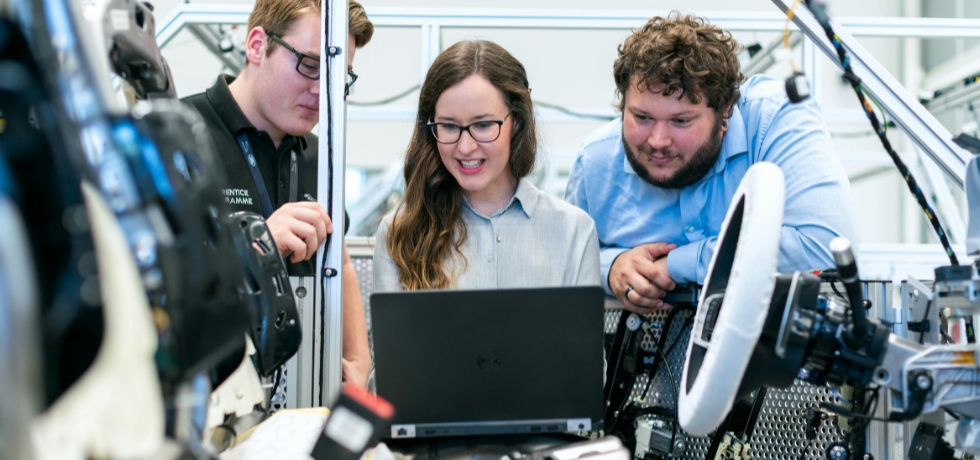The industrial sector ranks among the top sources of global waste and carbon emissions, with areas like manufacturing, construction, and energy generation contributing to nearly 40% of total waste. The circular economy—a restorative framework aimed at eradicating waste and ensuring that materials are perpetually utilized—has been regarded as a potential solution to this issue for some time. Nevertheless, its implementation has been hindered by shortcomings in waste tracking, materials recovery, and resource optimization. Enter artificial intelligence (AI), a technology that is currently transforming the possibilities of circular economies through improved efficiency, precision, and scalability. But can AI genuinely eradicate industrial waste on a significant scale?
AI in Waste Optimization and Resource Efficiency
One of the main challenges in adopting a circular economy is the insufficient visibility into material flows within industrial supply chains. The combination of AI-driven data analytics, the Internet of Things (IoT), and machine learning can deliver real-time insights into resource utilization, waste production, and process inefficiencies.
For example, predictive analytics powered by AI can enhance manufacturing processes by reducing material waste. By examining production data, machine learning algorithms can pinpoint inefficiencies in energy use, raw material consumption, and defect rates, resulting in a substantial decrease in waste. Siemens, for instance, has incorporated AI into its industrial processes to lower raw material consumption and streamline production, achieving waste reductions of up to 20% in certain scenarios.
AI and Intelligent Material Sorting
Recycling is a crucial component of the circular economy, yet traditional recycling processes suffer from contamination, inefficiencies, and high operational costs. AI-powered sorting systems, utilizing computer vision and robotics, are transforming material recovery facilities (MRFs) by improving sorting accuracy and speed.
Companies like AMP Robotics and ZenRobotics employ AI-driven robotic arms equipped with high-speed cameras and deep learning algorithms to identify and sort different types of waste, including plastics, metals, and paper, at an unprecedented accuracy rate. These systems can distinguish between various grades of recyclable materials, ensuring higher purity in recovered resources and increasing their value in secondary markets.
AI in Industrial Asset Tracking and Reverse Logistics
AI-powered circular supply chains also rely on efficient reverse logistics—the process of tracking, collecting, and redistributing used products and materials back into the production cycle. AI-enhanced asset tracking systems leverage blockchain and IoT sensors to monitor the lifecycle of industrial components, allowing manufacturers to predict maintenance needs, extend product lifespans, and ensure proper recycling or refurbishment.
For instance, Rolls-Royce uses AI to optimize engine maintenance and material reuse in aerospace manufacturing. Their AI-driven analytics platform predicts when aircraft engines will require refurbishment, allowing components to be recycled efficiently, thereby reducing waste and conserving valuable materials such as titanium and rare earth metals.
AI-Enabled Circular Business Models
Beyond optimizing waste reduction and recycling, AI is facilitating the rise of entirely new business models that promote circularity. Subscription-based models for industrial equipment, predictive maintenance services, and AI-driven product life extension strategies are becoming increasingly viable.
For example, Caterpillar employs AI-powered predictive maintenance to extend the lifespan of heavy machinery, reducing the need for new production and lowering overall material consumption. Similarly, AI-driven rental and sharing platforms for industrial tools and machinery ensure that resources are utilized efficiently across multiple users, minimizing waste and maximizing utilization.
Challenges and Limitations
The implementation of AI-driven circularity requires substantial upfront investment in data infrastructure, sensor technology, and machine learning capabilities. Additionally, the effectiveness of AI systems depends on the quality and availability of data—many industries still struggle with fragmented data silos and inconsistent reporting standards.
Moreover, ethical concerns around AI-driven decision-making, data privacy, and workforce displacement must be addressed. As AI automates various industrial processes, there is a risk of job losses in traditional waste management and manufacturing roles. To mitigate these risks, businesses and policymakers must invest in reskilling programs and workforce adaptation strategies.
Also read: Exploring the Green New Deal’s Role in Advancing Sustainability
AI as a Catalyst for Circularity
The incorporation of AI into circular economy initiatives signifies a significant shift in industrial sustainability. By improving waste monitoring, maximizing resource efficiency, and facilitating innovative business models, AI can greatly decrease industrial waste. Nonetheless, the broad implementation of these technologies will necessitate cooperation among governments, industries, and tech providers to tackle technical, financial, and ethical issues.
If used effectively, AI-driven circular economies could substantially lower industrial waste, cut carbon emissions, and set the stage for a genuinely regenerative industrial framework. While AI may not fully eradicate industrial waste, it certainly serves as a potent instrument in hastening the move towards a more sustainable future.








